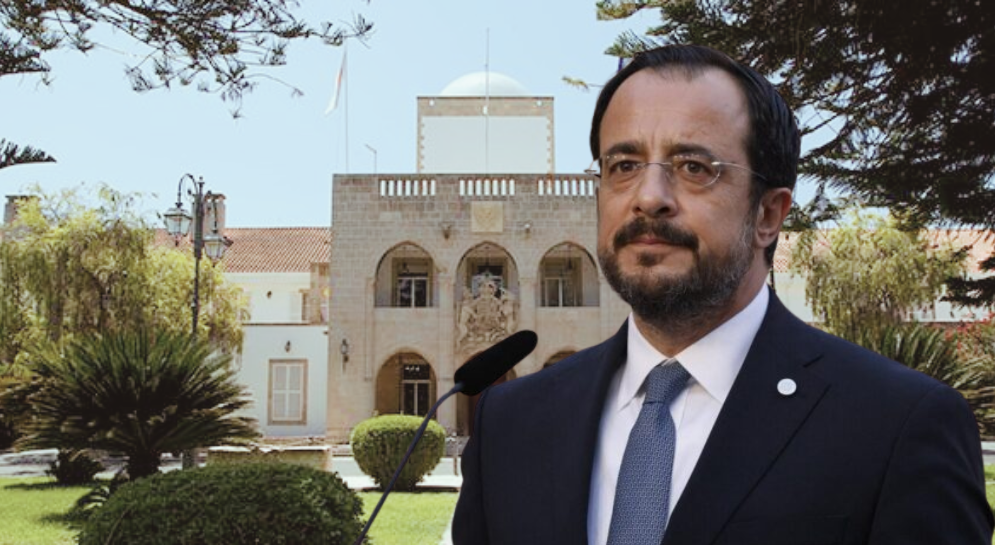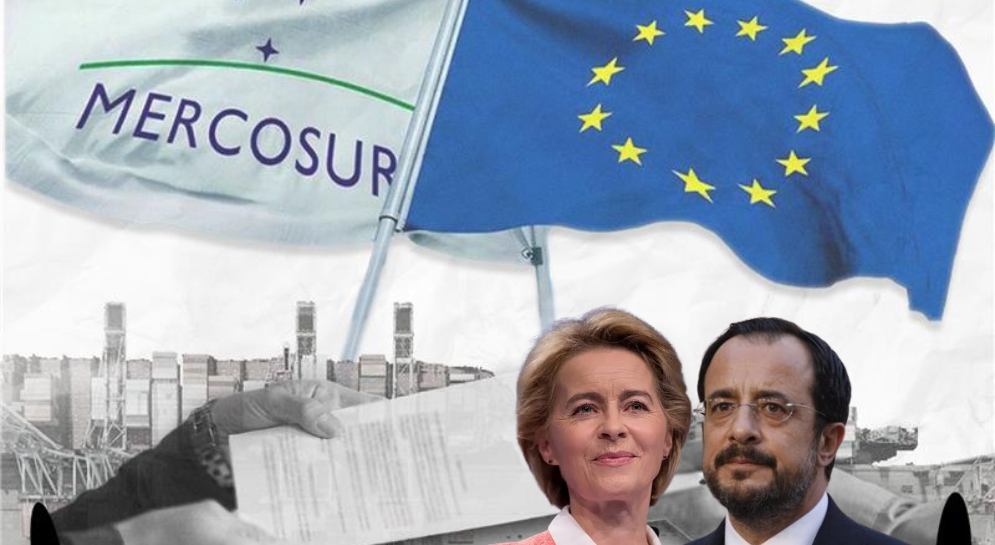
The EU can also play a role in the solution of the Cyprus problem and with regards the content of the solution
Saturday 4 May 2024 “HARAVGI” newspaper
Stavri Kalopsidiotou: A realistic reading of the European Council Conclusions commands that we should devote our efforts to making use of incentives beyond EU-Turkish issues
Our own presence in the EU was and remains to be used at least for long as the prospect of Turkey’s accession lasts, even though it is a fact that the prospect of Turkey’s full accession to the EU has now faded. In the existing conditions today, the incentive for Turkey is the energy issue and not EU-Turkish issues.
At the same time, unrealistic expectations mustn’t exit as to what the EU can or is prepared to do about the Cyprus problem. It is well known that the expectations that were cultivated in previous years for the imposition of EU sanctions on Turkey have been dashed. Just as President Christodoulides’ goal for the appointment of an envoy of the European Council was unfounded from the very beginning. The fact that both [these goals] have been abandoned confirms the above assessment.
Parallel initiatives need to be taken at other levels too
Stavri Kalopsidiotou, AKEL-Left-Social Alliance candidate for the European Parliament, in response to the question of what role the EU plays or can play in the efforts to resolve the Cyprus problem, stresses that: “AKEL remains steadfast in its assessment that the comprehensive solution of the Cyprus problem on the basis of the agreed framework can be achieved only under the auspices of the UN. That said, the necessity of making use of all supporting factors is not nullified. The EU too can play a role in the solution of the Cyprus problem – in the real dimensions of the issues to which it can make a positive contribution – whilst after the solution of the Cyprus problem, it can provide a framework of security in relation to the implementation of the solution itself.
Bringing the Cyprus problem to the decision-making centres of the EU and its perception as a common challenge in EU-Turkey relations, the strengthening of the unifying elements provided by the nature of the European acquis before and after the solution, as well as enhancing the sense of security of citizens, confirm our assessments as expressed at the 18th Congress of our Party.
Since 2004 and onwards, despite the negotiating setbacks and more recently the unacceptable Turkish demand for a two state ‘solution’ by the Turkish side, the EU’s explicit commitment to Bizonal, Bicommunal Federation with political equality has strengthened our efforts. As does the recognition of the sovereign rights of all member states in the Exclusive Economic Zone, as does the condemnation of Turkey’s illegal actions. The positive stance taken by the EU on the core issue of security and guarantees at the Crans Montana Conference also confirms the role that the EU can play in the content of the solution, given the need for a federal Cyprus to be a truly functional EU member state.
At the same time, making use of EU-Turkish relations which in effect are underway, under certain preconditions, help to create a political climate which is supportive of the solution. However, without exaggerations, which Mr Christodoulides continues to indulge in as President of the Republic, which do not take into account the political realities within the EU and distract from the need for meaningful initiatives to be taken at other levels as well.
Attaching exaggerated significance to the Conclusions
The recent statements by the President of the Republic that in the recent European Council Conclusions we have, for the first time, succeeded in establishing a substantive link between EU-Turkish issues with progress on the Cyprus problem have been read differently.
Stavri Kalopsidiotou clarifies that “the Conclusions do not contain anything new. They are part of the EU’s declared positions and assign COREPER the preparatory role it has anyway.
The fact that they refer to the Borrell Report of last November, which states that “Turkey’s stand on the Cyprus problem and its non-recognition of the Republic of Cyprus continues to impede the various avenues of cooperation”, records a reality. As well as the statement that “making use of the full potential of a positive agenda with the Republic of Turkey will remain extremely difficult in the absence of a solution to the Cyprus problem”. Without underestimating the importance of these findings, which may influence future decisions, they do not at this stage prescribe anything specific as to what the EU intends to do if Turkey continues to insist on a two-state solution, a position which prevents the resumption of the negotiations.
The attempt to attribute to the Conclusions more importance than they actually have is not helpful. On the contrary, the realistic reading of them that requires us to make use of incentives beyond the Euro-Turkish ones to push Turkey to change its attitude is imperative. Mr Christodoulides’ meaningless games at gaining impressions expose him, but unfortunately, they continue to undermine the credibility of our side as well.
Turkey’s accession perspective offers the possibility of a link with the Cyprus problem
On the question whether Turkey’s accession course can act as a lever to pressure Ankara to cooperate on the Cyprus problem, Stavri Kalopsidiotou replied: “We believe that Turkey’s accession perspective must remain open. Because as a process it offers the possibility of being linked to the solution of the Cyprus problem. The fulfilment of the contractual obligations it has undertaken through the Negotiating Framework, the Copenhagen political criteria and the Ankara Additional Protocol concern all member states and the Republic of Cyprus has the possibility of vetoing them at Council level. In reality, a positive conclusion to the accession process presupposes a normalisation of Ankara’s relations with the Republic of Cyprus and for this to happen, a solution to the Cyprus problem must first be found. As we have been pointing out for years, the scenario of abandoning Turkey’s accession process once and for all and replacing it with a special relationship, indeed referring to ‘gifts’ to Ankara, such as the unconditional upgrading of the customs union and visa liberalisation, would dangerously undermine the possibility of linking EU-Turkish relations with a solution to the Cyprus problem.
On this scenario too, Ankara would have all the economic, trade and geopolitical benefits without any leverage for drastic pressure to be exerted on it to improve its relations with neighbouring states – including the Cyprus problem – or for democratic changes in its internal affairs.





